Description
Bottle Size: 4oz
Serving size: 30 drops
Servings per bottle: 118
One serving contains:
certified organic Graviola (Anona muricata)
whole leaf extract (1:1)
Warning: May cause drowsiness or drop in blood pressure. If this happens, do not drive or operate heavy machinery. Do not use with anti-convulsant or antidepressant medication, or if you are pregnant or nursing. Keep out of the reach of children. Do not exceed 3 months of continuous daily use of this product to avoid possible neurological side effects.
Botanical in the Wild
The fruit of the Graviola tree is very popular. Royal Graviola™, however, employs the potent medicinal properties found in the leaves.
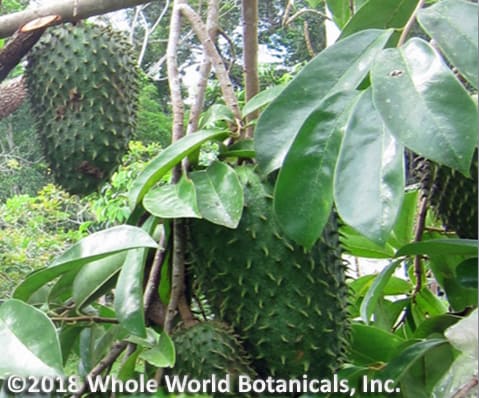
The leaves are plentiful on the Graviola tree.
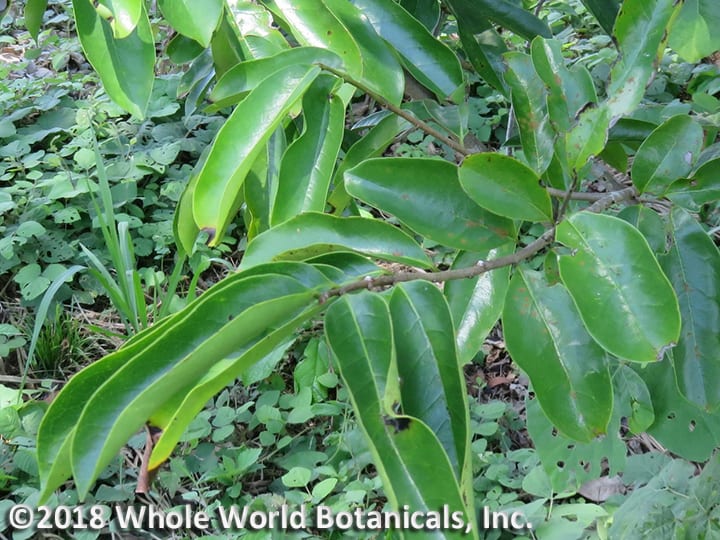
See more…
Benefits
Traditionally, Graviola is used:
- To relieve coughing*
- To support healthy blood pressure*
- To support the lungs
- To reverse cell mutation
- To help with childbirth*
- To relieve occasional skin rashes*
- To support healthy function of the liver*
Through Scientific Research, Graviola has been shown to
- Contain alkaloids, found to reduce depression systems by regulating serotonin in the brain*
- Demonstrate cytotoxicity against mutated cells*
- Be useful for hypertension, as a vasodilator, as an antispasmodic (smooth muscle relaxer), and as cardio depressant (slowing of heart rate)*
- Demonstrate a significant reduction in both systolic and diastolic blood pressure*
- Demonstrate antibacterial and antitumor activities, including anti-viral activity against the Herpes simplex virus*
Note: Do not self-treat for any condition. Consult your physician.
Each Serving Contains
Each serving of Royal Graviola™ contains 1 gram of Certified Organic Graviola leaves in a 1:1 water-based extract.
| Vegan | Gluten-Free | Irradiated | Pesticides /chemical fertilizers | Additives | Excipients or flow agents | Wildcrafted |
|---|
| Yes | Yes | No | No | No | No | Yes |
Dosing Considerations
The liquid extract may be taken directly under the tongue or added to water or juice.
Directions
For Immune Support: Take 30 minutes before or 2 hours after meals. Start with 30 drops once a day. Gradually increase to 4 servings daily, then to 60 drops per serving. Take for up to 3 months or as directed by a physician.
For Healthy Blood Pressure: Take 30 drops in water before bed.
Contraindications
Warning: Do not take if pregnant or nursing, or if you have a neurodegenerative disorder or Parkinson’s Disease. If drowsiness or drop in blood pressure occurs, do not drive or operate heavy machinery. Do not use with anti-depressants or anti-convulsants. This product is not for long-term daily use. In rare cases, after continuous usage over many years, Graviola has caused adverse neurological changes (hand tremors).*
DISCLAIMER: Whole World Botanicals does not recommend self-treatment with any of our products. Our products are not sold to prevent, diagnose, treat or cure any illness. They are sold to support the organs and systems of the body. If you are suffering from a serious illness or a potentially serious illness, it is very important that you seek the help of a licensed, expert health practitioner.
…this choice was right for me.
“I am 46 years old. A year and a half ago I had a lumpectomy to remove a lump in my breast the size of a lemon. I refused chemo and radiation and decided instead to put myself on a diet designed to reduce my risk for a recurrence of the malignancy and to take as much Royal Graviola™ as I could handle for three months and three teaspoons of Royal Camu® powder in water spread throughout the day. Obviously, I cannot make any claims about preventing or curing my condition, but this choice was right for me. I feel great and have a lot of energy. I worked with a holistic health practitioner and would advise others to work with expert practitioners and to get advice from several different sources.”
~Linda S., South Fallsburg, New York
Do You Have a Testimonial?
If you have used this product and have a story to tell, please fill in the form below. With your permission, we may also publish your testimonial on this website. We will not publish your full name or your email address!
Color Catalog – lists all the Whole World Botanicals products in a summary format
Royal Graviola™ Liquid Extract, 1-Page Printable – one page you can print to show to others
What is Graviola?
Written by Viana Muller, Ph.D.
Copyright ©2018 This material may not be copied in part or in its entirety without prior written permission from the author.
Graviola is a fruit tree native to North and South America and the Caribbean, where it is known by such names as Paw-Paw, Soursop, and Guanabana. The species native to South America is the Guanabana tree, and it is prized for its fruit, which is used in drinks, ice cream, and marmalades. The leaves and seeds of the tree have long been used by native peoples for an astounding variety of ailments, ranging from parasites (the seeds), to high blood pressure and cancer.
Although research on the Graviola tree began in the 1940s, it was greatly intensified in the 1970’s with screening of thousands of plants by the National Cancer Institute. Initial screening demonstrated cytoxicity against cancer cells by several Annona species. In the 1990’s an upsurge in interest in the use of herbs to improve health and in new drug discovery from natural products spread throughout the world.
Scientific research has validated through animal studies the use of various parts of the graviola (guanabana) tree for hypertension, as a vasodilator, as an antispasmodic (smooth muscle relaxer), and as cardiodepressant (slowing of heart rate). Mikolajczak, McLaughlin, and Rupprecht (1989) discovered effective pesticidal activity in Annonaceous Acetogenins.
Traditional, Ethnobotanical Uses: for diarrhea (fruit), cough, hypertension, rheumatism, tumors, cancer, asthma, childbirth, lactagogue (fruit), malaria, tranquilizer, skin rashes, parasites (seeds), worms (seeds), liver problems, arthritis (used externally).
Sundarrao et. al. confirmed antibacterial and antitumor activities of an Annona species native to New Guinea. Gbeassor et. al. (1990) and Antoun (1993) have found antimalarial bioactives in Annona muricata. Padma et. al. (1998) confirmed anti-viral activity of Annona muricata against the Herpes simplex virus.*
Recent Advances in Annonae Research
Summary of Mechanism of Action Research Findings:
An article in The Journal of Natural Products (1999) stated: : “The Annonaceous acetogenins are promising new antitumor and pesticidal agents that are found only in the plant family Annonaceae. Chemically, they are derivatives of long-chain fatty acids. Biologically, they exhibit their potent bioactivities through depletion of ATP levels via inhibiting complex I of mitochondria and inhibiting the NADH oxidase of plasma membranes of tumor cells. Thus, they thwart ATP-driven resistance mechanisms.”
Three different research groups have conducted mechanism of action studies on annonaceous acetogenins and have each has confirmed that these chemical compounds are highly effective inhibitors of Complex I in mitochondrial electron transport systems in tumors. Many of the acetogenins have a cytotoxicity with ED50 values as low as 10-9 ug/ml. In the studies conducted by separate research groups all have confirmed significant anti-tumor, anti-cancer and selective toxicity against several different types of cancer cells which they studied. One of the eight published clinical studies demonstrated that one of the acetogenins in Graviola was selectively cytotoxic to colon adenocarcinoma cells. In this study the Annonaceous acetogenins were shown to possess 10,000 times the potency of adriamycin.
Following are excerpts from different publications summarizing various findings of research related to members of the genus Annonae, of which Annona muricata (Graviola) is a member.
Recent Advances in Annonaceous Acetogenins (National Cancer Institute, 1997)
“Annonaceous acetogenins are waxy substances consisting of C32 or C34 long chain fatty acids which have been combined with a 2-propanol unit at C-2 to form a lactone. They are only found in several genera of the plant family, Annonaceae. Their diverse bioactivities as antitumor, immunosuppressive, pesticidal, antiprotozoal, antifeedant, anthelmitic, and antimicrobial agents, have attracted more and more interest worldwide. Recently, we reported that the Annonaceous acetogenins can selectively inhibit the growth of cancerous cells and also inhibit the growth of adriamycin resistant tumor cells. As more acetogenins have been isolated and additional cytotoxicity assays have been conducted, we have noticed that, although most of acetogenins have high potencies among several solid human tumor cell lines, some of the derivatives within the different structural types and some positional isomers showed remarkable selectivities among certain cell lines, e.g., against prostate cancer (PC-3). We now understand the primary modes of action for the acetogenins. They are potent inhibitors of NADH: uniquinone oxidoreductase, which is I an essential enzyme in complex I leading to oxidative phosphorylation in mitochondria. A recent report shoed that they act directly at the uniquinone-catalytic site(s) within complex I and in microbial glucose dehydrogenase. They also inhibit the uniquinone-linked NADH oxidase that is peculiar to the plasma membranes of cancerous cells.”
Selective Bibliography of Research
Alali, F.Q., et. al., Annonaceous acetogenins: recent progress. J. Nat Prod. 1999 March; 62(3): 504-40. Review.
Bories, C. et. Al., Antiparasitic Activity of Annona Muricata and Annona Cherimolia Seeds Planta Med 57 5: 434-436 (1991)
Carbajal, D., et. al., Pharmacological Screening of Plant Decoctions Commonly Used in Cuban Folk Medicine. J Ethnopharmacol 33 1/2: 21-24 (1991)
De Feo, V. 1992. Medicinal and magical plants in the northern Peruvian Andes. Fitoterapia 63, 417-440
Gbeassor. M. et. al. In Vitro Antimalaria Activity of Six Medicinal Plants. Phytother Res 4 3: 115-117 (1990)
Hasrat, J.A., et. al. Isoquinoline derivatives isolated from the fruit of Annona muricata a 5-Htergic 5HT1A receptor agonists in rats: unexploited antidepressive (lead) products. J Pharm Pharmacol. 1997 Nov; 49(11): 1145-1149.
Heinrich, M. et. Al., Parasitological and Microbiological Evaluation of Mixe Indian Medicinal Planta (Mexico) J Ethnopharmacol 36: 1: 81-85 (1992)
Hopp, D.C and J.L. McLaughlin, Use of Selectively Cytotoxic Annonaceous Acetogenins, filed Feb. 4, 1997, P-97006.00



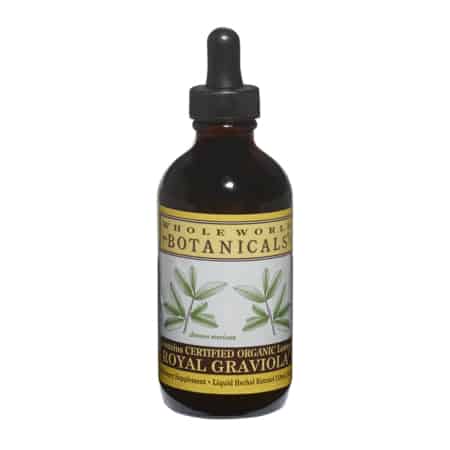


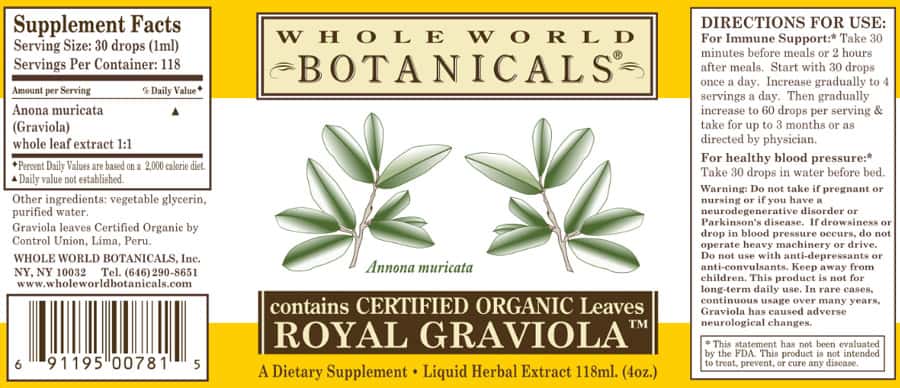
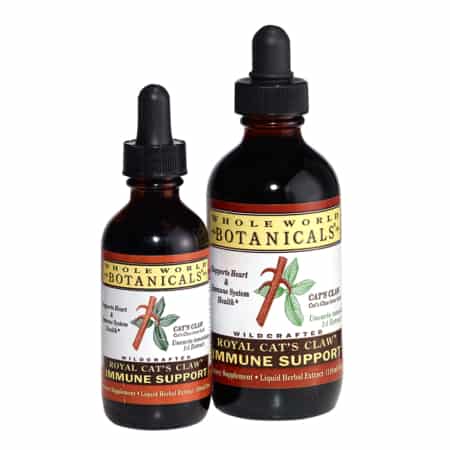
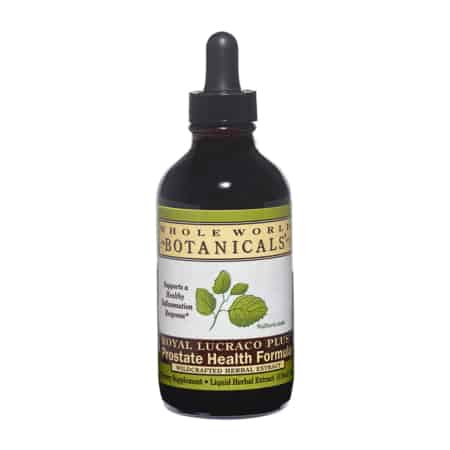
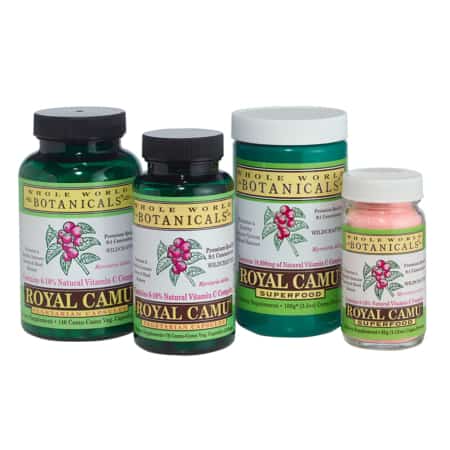
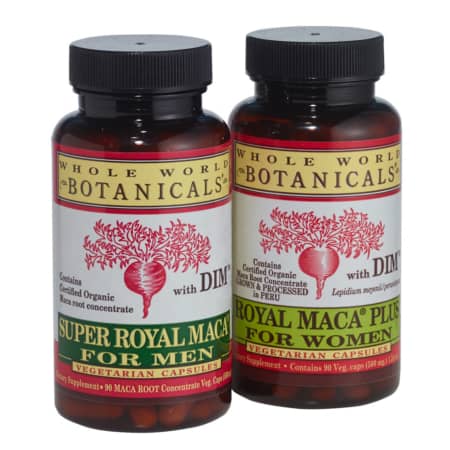
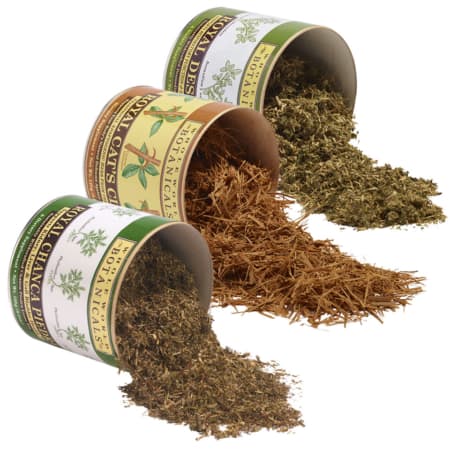
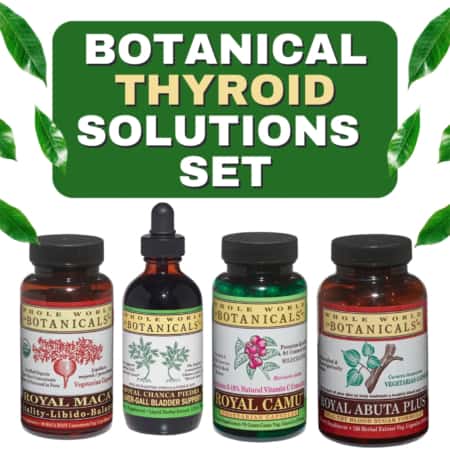
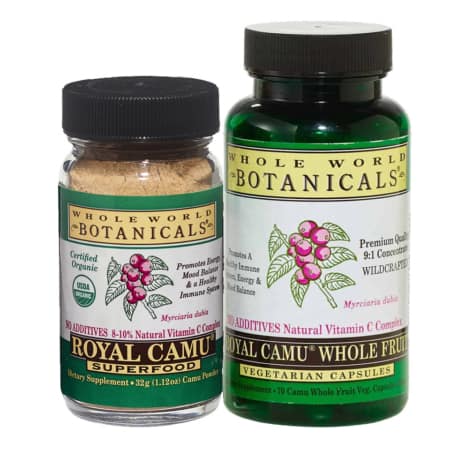





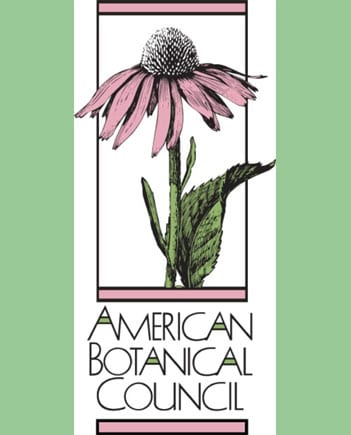



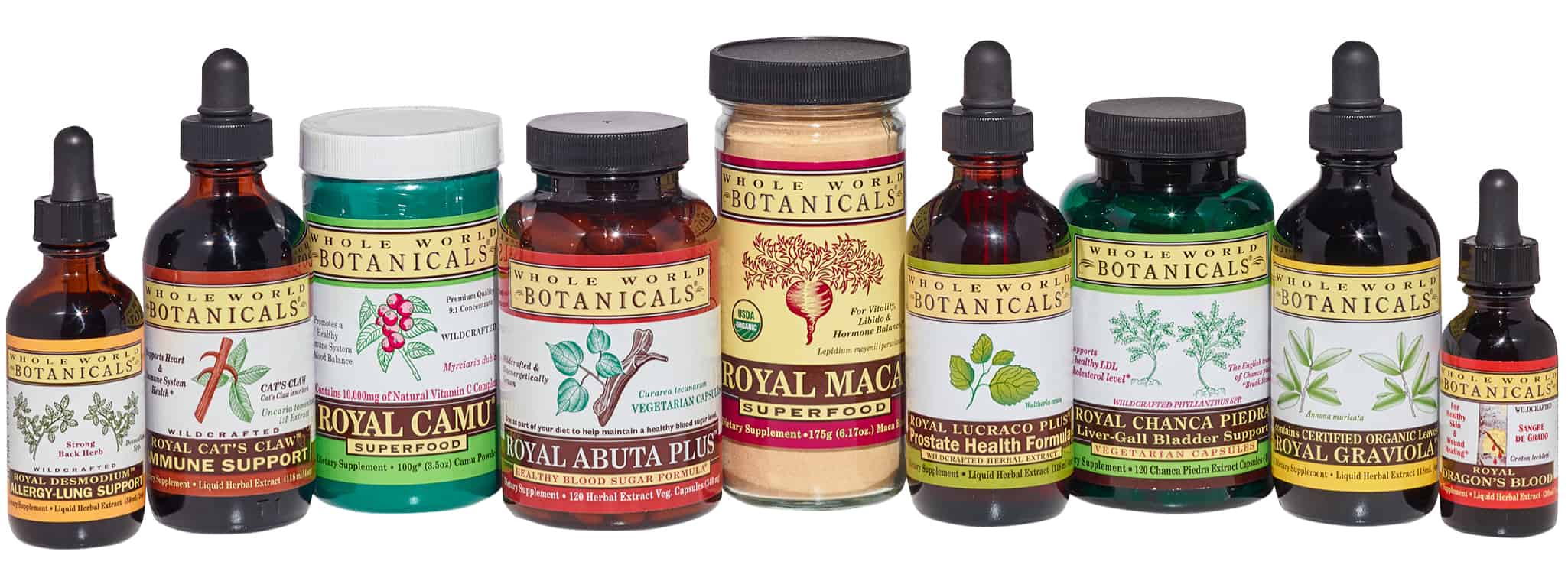



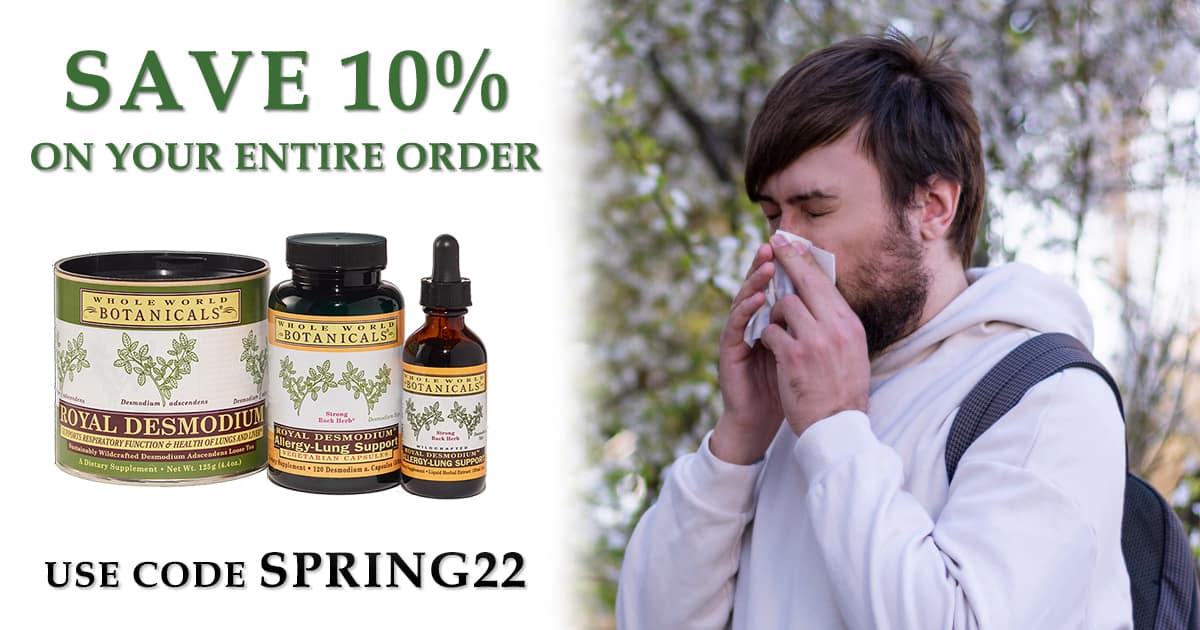







Reviews
There are no reviews yet.